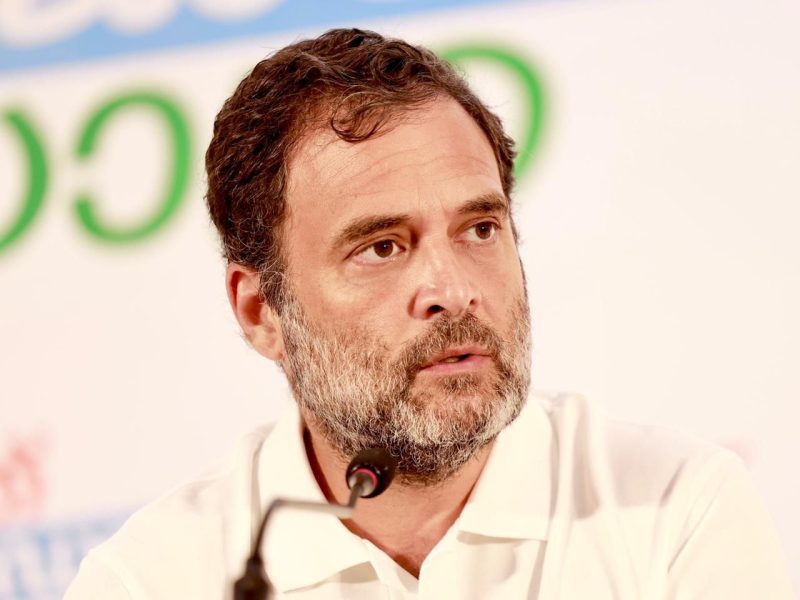
Trial unfair; no need for max punishment: Rahul’s lawyer in Surat sessions court

Rahul Gandhi’s trial in the “Modi surname” case was not fair and there was no need for maximum punishment as handed by the metropolitan magistrate court, the Congress leader’s lawyer argued in the Surat sessions court on Thursday (April 13).
The Surat metropolitan magistrate court on March 23 sentenced Gandhi to a two-year jail term after holding him guilty for his remark “How come all thieves have Modi as the common surname” made during an election rally on April 13, 2019.
BJP MLA Purnesh Modi, who is the complainant in the case, in his reply filed in court, has opposed Gandhi’s plea for a stay on conviction, saying the Congress leader is a “repetitive offender” who is in the habit of making defamatory statements.
“Strange” judgement
On Thursday, arguments from both sides commenced in the court of Additional Sessions Judge RP Mogera.
Arguing for Gandhi, senior advocate RS Cheema told the judge that the trial was not “fair”. The judgement was “strange” because the trial court judge “made a hodgepodge of all the evidence on record”, Cheema said.
Also read: Modi surname remark: Patna court summons Rahul Gandhi on April 25
“It was not a fair trial. The entire case was based on electronic evidence, wherein I made a speech during elections, and a person sitting 100 km away filed a complaint after watching that in the news… There was no need for maximum punishment in this case,” Cheema argued on behalf of Gandhi.
He added that Gandhi’s unconditional apology to the Supreme Court (in the Rafale contempt case) was wrongly attached with this case by the complainant.
“Speech made huge impact”
Arguing against Gandhi’s plea for a stay on conviction, Purnesh Modi’s lawyer Harshit Toliya said his client felt offended because Gandhi had tried to defame all people with the Modi surname through his remarks.
“He (Gandhi) was the president of the second largest party at the time of making the speech. His speech made a huge impact on the people of India and he also tried to sensationalise his speech,” said Toliya.
Also read: At massive rally in Kerala’s Wayanad, Rahul Gandhi dares BJP
“In his speech, Rahul Gandhi spoke about Prime Minister Narendra Modi. But he didn’t stop there and went beyond it. He then said ‘Saare choron ke naam Modihi kyun hai? Dhoondho aur bhi Modi milenge (Why are all thieves have Modi surname? If you search, you will find more such Modis)’. My client was hurt by this part of the speech and thus the complaint,” Toliya added.
He told the court that Gandhi had refused to apologise for his remarks. Toliya said Gandhi was facing similar defamation cases across the country and he was making such defamatory statements despite tendering an unconditional apology in the Supreme Court in the past (in the Rafale case).
Objection over jurisdiction
Gandhi, who was the MP from Wayanad in Kerala before his conviction led to disqualification, made the “Modi surname” remark while addressing a rally at Kolar in Karnataka on April 13, 2019, during the Lok Sabha election campaign.
Responding to Cheema’s argument about the jurisdiction (as Gandhi had made the speech in Karnataka), Toliya said that although no objection was raised earlier during the trial before the magistrate, the issue was being raised now.
Also read: Rahul visits Wayanad for first time after disqualification, holds massive road show
The arguments from the complainant’s side will continue after recess. The state government, which has been made a party by the court, is also expected to make its submission after the recess.
Gandhi has filed an appeal before Judge Mogera against the March 23 verdict. He has also prayed for a stay on the conviction in the meantime.
In his appeal, Gandhi has termed his conviction as “erroneous” and patently perverse.
(With agency inputs)


